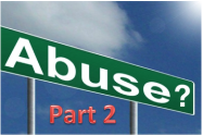 www.nyphotographic.com
www.nyphotographic.com So here’s a follow-up, with both “how to be” as well as “what to do” remedies.
To recap, when approached for support, people often default into a problem-solving mode. Yet, even in mastermind groups where the purpose is to tap into the know-how of peers, advice-giving can backfire and even be experienced as abusive. We saw that with “Mindy” who asked for ideas about how to get more visibility…and was overwhelmed by the information she got to an almost crippling level.Why? Mindy already knew most of what she was hearing, but fear inhibited her ability to implement it. So while the group piled on better and better ideas, Mindy just got more and more demoralized.
Part 1 remedies included making it ok to talk about implementation challenges. And if problem-solving isn’t working, stop.
A Deeper Look at What’s Going On: A Perfect Storm, with Shame
But why is it so hard for someone in Mindy’s situation to redirect the feedback she’s getting if it’s not effective? Why do we create this situation so often, and fail to recognize it?
One aspect: we think we’re logical—but often aren’t. So when something looks like a problem that invites analysis, we go to our heads. And once we’re in our heads, it’s hard to leave there. So Mindy and the mastermind group stayed stuck in “figuring it out.”
Which invites the second element of a perfect storm: shame. When Mindy heard something that she ought to be able to do--yet couldn’t—that plunged her into a well of shame that was already pretty deep. And because shame creates an aversion to even name you’re experiencing it, it was hard for Mindy to articulate her conundrum. Even asking Mindy if there was a shame cascade going on could be shaming.
The parallel dynamic going on in the group adds to this perfect storm. The group is looking to create an “aha” experience for Mindy. But since this is framed as a problem-solving exercise, when we don’t see that “aha,” we resort to trying harder. And since our pride is on the line in having something to offer, we’re also looking in our heads for the answer…maybe feeling a bit ashamed or uncomfortable ourselves at not finding one…and hence retreating even more into our heads. Shame might be operating in us, as well—if only as a reflection of what’s going on in Mindy, and unconsciously wanting to avoid a dynamic that’s starting to feel kind of uncomfortable.
Solutions: More How to Be Than What to Do -- Attune!

Rather, let’s attune to the energy of what’s happening. When we feel in to what’s going on in the person we want to support, is it actually helping them connect to their core intention? Does you sense they’re feeling more resourceful? Is the dialog empowering for them? Are they feeling more expansive? Are they learning?
Or, is what’s going on eroding those qualities? Do you feel a sense of contraction?
Simply being attuned to what’s going on will lead to a healthy path.
What Else?
If only to satisfy those parts of us that want more “how to’s,” here’s more:
- Knowing that people often offer unintentionally harmful advice, be proactive about the support you do (and don’t) want. For example, you might set the context by stating something like: “I just want to think out loud—if you’ve got an amazing idea for me, can you check first to see if I’m ready to absorb advice before you share it?” Permission is a good thing!
- Similarly, set and monitor ground rules for groups to keep feedback safe.
- In a mastermind or similar group, have someone assigned as an “energy sensor,” much as we might assign a timekeeper. Notice: is the person in the hot seat feeling like they’re got access to more resources…or less? Has the tempo of suggestions accelerated; feeling like there’s piling on? Ask for a time-out, for people in the group to sense what they’re feeling, not just thinking, and explore insights from that perspective.
- For regular advisors and advice-generating groups, explore this subject, including the element of shame, and how to make it discussable. That creates more awareness and license, and by normalizing and naming the issue, we take some of its harmful force away.
Another proactive step: the more an individual is connected to their core intention, the more able they are to metabolize advice-giving in a positive way, and the more immune they are to abuse. So learn what your core intention is, and how to enable others to connect to theirs! (See Core Intention training here.)


 RSS Feed
RSS Feed
